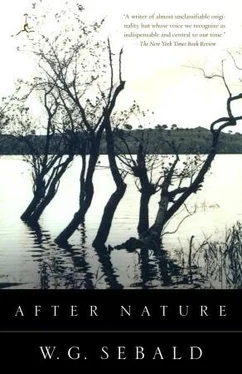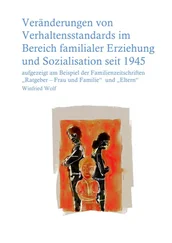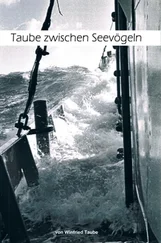brings mushrooms, berries and leaves,
makes fire and tea.
Throughout the winter
the German doctor teaches
Koryak children in a tiny
wooden school, writes
when the ice breaks
memoranda in defence
of the indigenous people maltreated
and deprived of their rights by
the Naval Command at Bolsheretsk—
with the consequence that a letter against him
is despatched, that interrogations take place,
that misunderstandings arise,
that arrests follow and that Steller
now wholly grasps the difference
between nature and society.
Westward, stage after stage he covers
fleeing back, and it seems as though
everything now were going downhill.
Only in Tara does the message reach him
that by any route possible
he may now set out for his home.
Steller hires three horses,
drives to Tobolsk,
and there he,
who never drank, drinks
for three whole days.
Then comes the fever,
he creeps into the sledge,
tells the Tatar to drive on southward,
the hundred and seventy miles to Tyumen.
This is infirmitas, the breaking
of time from day to day
and from hour to hour,
it is rust and fire
and the salt of the planets
darkness even at noon and
luminaries absent from heaven.
Manuscripts written at the end of his life,
on an island in the glacial sea,
with scratching goose-quill in bilious ink,
lists of two hundred and eleven
different plants, tales of white ravens,
unknown cormorants and sea-cows,
gathered into the dust
of an endless inventory,
his zoological masterpiece
De Bestiis Marinis,
travel chart for hunters,
blueprint for the counting of pelts-
no, not steep enough
was the north.
At Tyumen they carry him out of the sledge,
drag his half-petrified body
out of the ice into the fire,
into a furnace house.
Now begins alchimia,
Steller recognises the mortem improvisam,
the stroke and all its appendage,
sees his death, how it is mirrored
in the field-surgeon’s monocle.
Such are you, doctores,
spilt lamps,
thus nature has her way
with a godless
Lutheran from Germany.
Pallas tells how Steller, whom he revered,
the next day,
wrapped in his red cloak,
a good distance outside the place of rest
of the believers was laid in a narrow ditch
high up above the Tura’s banks,
how they heaped up a mound
of frozen sods. Pallas
writes too that the dead man
was dreaming still of the grazing
mammoth across the river
until in the night someone came
and took his cloak
and left him to lie in the snow
like a fox beaten to death.
et iam summa procul villarum culmina fumant
maioresque cadunt altis de montibus umbrae
and now far-off smoke pearls from homestead rooftops
and from high mountains the greater shadows fall
Virgil, Eclogues I
For it is hard to discover
the winged vertebrates of prehistory
embedded in tablets of slate.
But if I see before me
the nervature of past life
in one image, I always think
that this has something to do
with truth. Our brains, after all,
are always at work on some quivers
of self-organisation, however faint,
and it is from this that an order
arises, in places beautiful
and comforting, though more cruel, too,
than the previous state of ignorance.
How far, in any case, must one go back
to find the beginning? Perhaps
to that morning of January 9th, 1905,
on which Grandfather and Grandmother
in ringing cold drove in an open
landau from Kloster Lechfeld
to Obermeitingen, to be married.
Grandmother in a black taffeta dress
with a bunch of paper flowers, Grandfather
in his uniform, the brass-embellished
helmet on his head. What was in their minds
when, the horse blanket over their knees,
they sat side by side in the carriage and
heard the hoofbeats echo
in the bare avenue?
What was in the minds
of their children later, one of whom
stares out fearfully from
a class photograph taken
in the war year 1917
at Allarzried? Forty-eight
pitiable coevals,
the schoolmistress on the right,
on the left the myopic
chaplain and as a caption
on the reverse of the
spotted grey cardboard mount
the words “in the future
death lies at our feet,”
one of those obscure oracular sayings
one never again forgets. On another
photograph of which I possess an enlarged
copy, a swan and its reflection
on the water’s black surface,
a perfect emblem of peace.
The botanical garden around the pond,
to my knowledge, is situated
on the bank of the Regnitz at Bamberg
and I believe that a road
runs through it today.
The whole leaves an impression
that is somehow un-German,
the elms, the hornbeams and densely green
conifers in the background, the small
pagoda-like building, the finely raked
gravel, the hortensias, flag-iris,
aloes, ostrich-plume ferns and
the giant-leaved ornamental rhubarb.
Astonishing, to me, the persons
also to be seen in the picture:
Mother in her open coat,
with a lightness she was
later to lose; Father,
a little aside, hands in his pockets,
he too, it seems, with no cares.
The date is August 26th, 1943.
On the 27th Father’s departure for Dresden,
of whose beauty his memory, as he
remarks when I question him,
retains no trace.
During the night of the 28th
582 aircraft flew in
to attack Nürnberg. Mother,
who on the next day planned
to return to her parents’
home in the Alps,
got no further than
Fürth. From there she
saw Nürnberg in flames,
but cannot recall now
what the burning town looked like
or what her feelings were
at this sight.
On the same day, she told me recently,
from Fürth she had travelled on
to Windsheim and an acquaintance
at whose house she waited until
the worst was over, and realized
that she was with child.
As for the burning city,
in the Vienna Art-Historical Museum
there hangs a painting
by Altdorfer depicting Lot
with his daughters. On the horizon
a terrible conflagration blazes
devouring a large city.
Smoke ascends from the site,
the flames rise to the sky and
in the blood-red reflection
one sees the blackened
façades of houses.
In the middle ground there is a strip
of idyllic green landscape,
and closest to the beholder’s eye
the new generation of
Moabites is conceived.
When for the first time I saw
this picture the year before last,
I had the strange feeling
of having seen all of it
before, and a little later,
crossing to Floridsdorf
on the Bridge of Peace,
I nearly went out of my mind.
At the moment on Ascension Day
of the year ’forty-four when I was born,
the procession for the blessing of the fields
was just passing our house to the sounds
of the fire brigade band, on its way out
to the flowering May meadows. Mother
at first took this as a happy sign, unaware
that the cold planet Saturn ruled this hour’s
Читать дальше












